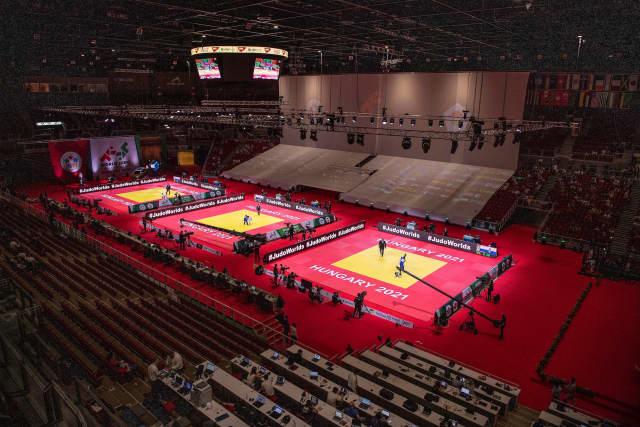We are like those intelligence analysts who, due to lack of field activity these days, dedicate themselves to analysing facts and studying graphs. In our diagrams there is one that may mean a lot, or may be a detail, but it is worth talking about. For the first time in many years no Japanese judoka lead the world ranking. Bearing in mind that there are fourteen categories and that the Japanese have nine active Olympic champions, it is a situation that draws a lot of attention, especially in regard to the lighter categories, the traditional hunting ground of the Japanese team.
We already said it: it is possible that the situation is not a true reflection of reality, after all, Ono Shohei is the best at -73kg for six years without ever having been the leader by points. The same can be said of the Frenchman Teddy Riner. However, we are also prepared to affirm the opposite. France's Clarisse Agbégnénou is top of the class at -63kg and has won it all in 2021 and Georgia's Lasha Shavdatuashvili lost Olympic gold to Ono, but he is the reigning world champion and parsimoniously leads his category.
There are immovable rankings that confirm a trend, such as -52kg, where the French Amandine Buchard leads ahead of her traditional executioner in the finals, the Japanese Abe Uta.
There are people who do not come down from the top three positions and there is no way to get them out of there, not even with hot water, such as the Belgian Matthias Casse, the Russian Arman Adamian, the Portuguese Jorge Fonseca, the German Anna-Maria Wagner or the Kosovar Distria Krasniqi.
What we can affirm is that, among women, Europe exercises leadership in an absolutist manner, with seven leaders, three of whom are French, two Kosovars, one Croatian and one German.
The men are more spread out, there is more universalism, more Asian presence, but not Japanese. Russia has the largest number of leaders and also a strong presence in the top five of each category. There is one who comes from Taipei, a Korean and an Uzbek. There are also Georgians, living on the cusp of Euro-Asia.
In short, put like that, it might sound like a tropical salad in the middle of winter, but there are three things that we are sure of, if it is possible to be sure in the world of judo: most of all the first swordsmen will win medals this year because there is a mix of solid veterans and plenty of talented youth. The second certainty is that, in the world championships in Tashkent, in October, the Japanese contingent will be the protagonist with or without leadership in the ranking. The third and last is that at the end of the year there will be some categories with new leaders.
WORLD RANKINGS
MEN
-60kg YANG Yung Wei (TPE) 5140 points
-66kg AN Baul (KOR) 5240 points
-73kg SHAVDATUASHVILI Lasha (GEO) 5475 points
-81kg GRIGALASHVILI Tato (GEO) 6592 points
-90kg BOBONOV Davlat (UZB) 7536 points
-100kg ADAMIAN Arman (RUS) 5420 points
+100kg BASHAEV Tamerlan (RUS) 6250 points
WOMEN
-48kg KRASNIQI Distria (KOS) 5920 points
-52kg BUCHARD Amandine (FRA) 5890 points
-57kg GJAKOVA Nora (KOS) 5880 points
-63kg AGBEGNENOU Clarisse (FRA) 7200 points
-70kg MATIC Barbara (CRO) 5595 points
-78kg MALONGA Madeleine (FRA) 5940 points
+78kg DICKO Romane (FRA) 6450 points



